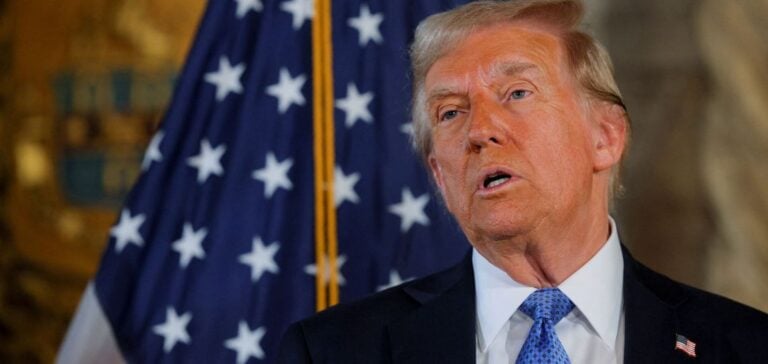The European Union faces unprecedented pressure as Donald Trump, the president-elect of the United States, announced he would impose tariffs if European imports of American energy do not significantly increase. This threat emerges as transatlantic energy trade becomes a growing strategic factor in balancing global markets.
In 2023, the European Union imported approximately 58 million tons of American liquefied natural gas (LNG), accounting for 68% of the total U.S. LNG exports that year. Although these flows declined slightly in 2024 to 53%, they remain critical to meeting Europe’s energy demands, especially following the drastic reductions in Russian gas imports.
The Stakes of Transatlantic Energy Trade
American crude oil, particularly WTI Midland, also constitutes a significant share of the trade. In December 2023, Europe imported 1.8 million barrels per day (b/d) of light American crude oil, volumes supported by reduced Asian demand. These exports, while substantial, still fall short of addressing the U.S. trade deficit with Europe, a goal regularly highlighted by Donald Trump.
Analysts point out that current U.S. infrastructure and contractual commitments, particularly in Asia, limit the flexibility of exportable volumes to Europe. Any increase in these flows would require reallocation, affecting other strategic regions, or increased domestic production, which remains uncertain.
Potential Impacts of Tariff Measures
Donald Trump’s threats to impose tariffs on European products come amidst an already tense global trade environment. These measures could not only disrupt energy trade but also lead to price hikes for consumers on both sides of the Atlantic.
Additionally, increased production costs due to tariffs could reduce the attractiveness of American hydrocarbons in global markets, undermining U.S. energy competitiveness. Rachel Ziemba, an advisor at Horizon Engage, warned that such protectionist policies risk destabilizing global trade flows while limiting the expected benefits to the U.S. deficit.
The European Position on Energy Challenges
In response, the European Union seeks to diversify its supplies while reducing its remaining dependence on Russian gas. Ursula von der Leyen, President of the European Commission, recently highlighted the interest in increasing American LNG imports to ensure energy security while stabilizing internal market prices.
However, this transition remains complex in the short term, given logistical constraints and competing demands from other American LNG clients, particularly in Asia. Experts agree that closer energy cooperation between the EU and the U.S. cannot proceed under the shadow of punitive measures, which risk undermining trust between strategic partners.






















